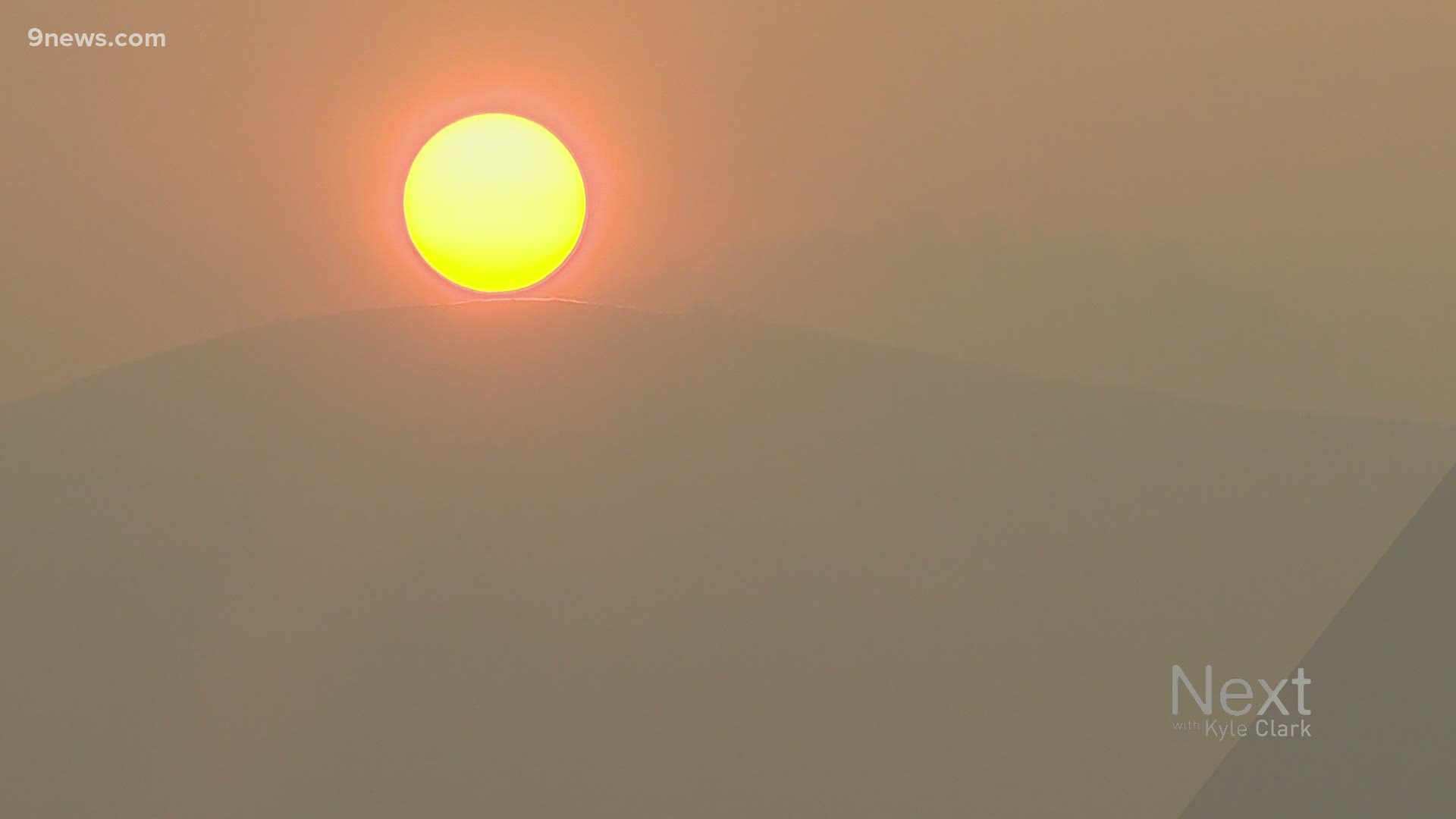DENVER — It's a unique combination: Wildfire smoke and COVID-19, both with serious implications for respiratory systems.
Dr. Anuj Mehta, with National Jewish Health and Denver Health, spoke to us about what we know when the two interact.
THE MAIN CONCERNS
Mehta said what's known for sure is the concern about symptoms.
When patients are exposed to smoke through wildfires, he said, it can trigger symptoms related to asthma and chronic obstructive pulmonary disease (COPD).
"Then if they get COVID on top of that, then that would definitely put them in a worse situation," he said.
Mehta said this is the time of year he typically sees more patients struggling with respiratory illnesses like COPD and asthma, in part because of wildfire smoke.
"If someone having an asthma exacerbation happens to COVID, it's hard to say exactly, oh it was the wildfires that caused [this] as opposed to COVID," the doctor said.
Dr. Comilla Sasson, an emergency department doctor in Denver who's been traveling to states around the country to treat COVID-19 patients and help hospitals prepare, said her main concern is also about symptoms worsening with wildfire smoke and COVID-19.
PUBLIC HEALTH
The Colorado Department of Public Health and Environment (CDPHE) said that this is an area of concern for them, as well.
In an e-mail sharing this statement:
"We know a few things for sure. First, COVID-19 is a respiratory illness that can have devastating effects on those who contract it. Second, exposure to wildfire smoke of the sort we've seen in Colorado over the last month is dangerous, especially to the very young, the very old and those with a history of respiratory and cardiac illness. So while there remains a measure of scientific uncertainty about the exact relationship between COVID-19 and the health consequences of exposure to wildfire smoke, we recognize it as a real concern, and that's one of the reasons we encourage Colorado residents to visit our air quality website for vital air quality information or sign up for email alerts at aq_subscribe@state.co.us."
RESEARCH
Mehta said there are few different factors that would be worthy of research including studying the epidemiology and looking into if there is a correlation between widlfires, poor air quality and what happens with COVID-19 numbers.
"Does smoke inhalation cause damage to the lung that increases the ability of the virus to get into the system?" he said. "There is very weak evidence for that right now."
The Centers for Disease Control and Prevention posted this on its website:
"Wildfire smoke can irritate your lungs, cause inflammation, affect your immune system, and make you more prone to lung infections, including SARS-CoV-2, the virus that cause COVID-19."
Both Mehta and Sasson said there isn't much data or specific research on this question about wildfire smoke and susceptibility to COVID-19, and that this could warrant more research.
Mehta said he did notice amongst his patients that some people are opting to stay inside more to avoid the smoke.
"By no means are cloth or surgical masks sufficient to prevent any sort damage from wildfire smoke," he added. "It's obviously really good at reducing the likelihood of getting COVID."
IS THIS NEW TERRITORY?
Mehta said while wildfire season continues to evolve, they don't typically see this kind of line up with the timeline.
"We haven't had a huge amount of respiratory conditions during the time that coincides with wildfire," he said about how unique of a situation this is, pointing out the flu season tends to take off later in the year.
At a federal level, there is discussion about setting aside money to research the intersection of wildfire smoke and COVID-19 but securing that money isn't a done deal yet.
SUGGESTED VIDEO: Full Episodes of Next with Kyle Clark

